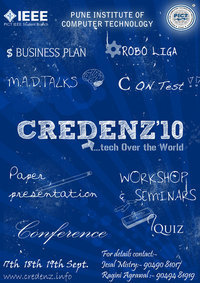Technology pervades all aspects of our lives, and now even educational institutions are actively adopting technology based systems. Pune’s Millenium School, Pune after scouring the market for an e-learning tool and unable to find a suitable one, decided to develop one on its own, and it is now available for all children at http://myEshala.com.
Basically, myEshala has video lectures, which they try to make interesting for the children, and quizzes/testing after every small segment to get an idea of whether the child has understood the lecture. Parents get a detailed report of what the child has studied, whether s/he has understood it, and whether they need to repeat any segments.
Why build myEshala when so many eLearning software packages already exist? This is the reasoning:
We have observed that there are lots of e-learning software product which sell “concepts”. Children are expected to use these concepts as and when necessary. We, on the other hand, have developed a product specifically targeting the Maharashtra State Board (SSC) for now. We provide a chapter by chapter tutorial for every subject (Hindi and Marathi excluded for now). We also do the same for quizzes. This makes it very tedious for us to make the content, but, the children get a huge benefit of seeing a monolithic lesson rather than picking up broken pieces here and there. This is especially true for the SSC Board, which is the most under-rated and the most neglected board in the country, for no apparent reason (there is an in-depth explanation of the same on our sister site)
This innovative tool – myEshala has thus been created people who have the software skills as well as hands-on experience in education and teaching. Nikhil Karkare, coordinator at Millennium National School, (and a very active member of CSI Pune and Pune Open Coffee Club) says, “Many of the e-learning tools in the market now, seem to have been developed by persons who do not have much experience in the education sector. Concepts are not set down in a child friendly manner and lectures tend to be long and boring – they don’t seem to really know what will or will not work in a classroom environment. So as engineers who could teach, we decided to combine our software and teaching skills to build this tool on our own.”
Once they developed and started using myEshala, the school found that parents and children benefited greatly from it. Students could take tests, view lectures (more than once), and play with widgets on the tool. Student performance and progress could now be accurately monitored and teachers too had more time to develop creative methods of delivery. “After implementing myEshala we have seen a significant improvement in the performance of students with the overall percentage increasing from 65% to 75%.” Nikhil Karkare happily adds.
The news spread and students from other schools as well requested to try out the tool. “This drove us to think that other children could also benefit from myEshala and we decided to put it on the retail market. Now other schools have started implementing myeshala as well.” Says Nikhil. Another goal in mind is to take myEshala to the rural areas as well where educational infrastructure is poor and challenges exist in imparting even basic education. “We want to make sure basic education reaches non-urban areas at a very low price.” Says Nikhil.
The use of technology however, is not new at Millennium National School. In fact they have always put it to use in a number of ways. Software was used to map each student’s home address on Google Maps, and then bus routes were planned accordingly. “This means saving of fuel and time, which is not only good for us, but for the environment as well.” Says Nikhil. They also predict the quantity of food to be prepared depending on the number of students present and certain other factors, by means of software. But, there are challenges too. “The end users are children of ages from Kindergarten to Std. 10. So usability sometimes becomes a big challenge. Again spending on technology is always limited, which is why we use Open Source technologies in most places.” Says Nikhil.
You can see the myEshala FAQ for more details.


